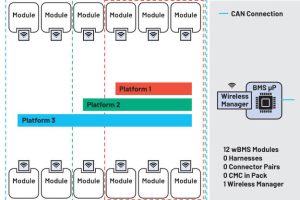Stricter rules on manufacturing and recycling batteries and accumulators (rechargeable batteries) for UK businesses have been introduced through the implementation of the European batteries Directive (EU Batteries and Accumulators Directive (2006/66/EC).
The legal obligations have been split into two parts: Requirements on battery labelling and design through the Batteries and Accumulators (Placing on the Market) Regulations 2008 SI 2164 (2008 Regulations); and requirements on collecting, treating and recycling waste batteries and accumulators, through the Waste Batteries and Accumulators Regulations 2009 (2009 Regulations).
These rules come into force on 5 May 2009, and producers will have to pay for the collection, treatment and recycling of batteries from 1 January 2010.
The first set of obligations, the Batteries and Accumulators (Placing on the Market) Regulations 2008 came into force on 26 September 2008. The second set of regulations, the Waste Batteries and Accumulators Regulations 2009 are due to come in force on 5 May 2009.
The current UK recovery rate of waste portable batteries is estimated at only 3%. This is one of the lowest rates in Europe.
The aim of the Regulations is to encourage the recovery of materials contained within batteries and reduce the environmental impact of portable, automotive and industrial batteries by increasing recycling and ‘greening’ the supply chain that produces and distributes them.
The Batteries and Accumulators (Placing on the Market) Regulations 2008, place ‘producer’ responsibility obligations on manufacturers and importers of portable, industrial and automotive batteries no matter what their type or where they are manufactured, (whether in the UK, the EU or imported from outside of the Community).
‘Producer’ extends to those producing battery – powered appliances and businesses that place or install batteries in electronic appliances and equipment and vehicles.
The 2008 regulations impose many obligations including requirements for labelling batteries, strict limits on content of certain chemicals within batteries and obligations on manufacturers to design certain appliances in such a way that waste batteries can be easily removed.
Batteries and accumulators that do not meet the new requirements should not be placed on the EU market (since 26 September 2008).
Non-compliance with the regulations may lead to serious consequences including the serving of compliance notices, serving of enforcement notices, an obligation on the producer to remove non-compliant batteries from the market and fines of up to £5,000 with costs.
The Scottish Environmental Protection Agency (SEPA) has been appointed as the body responsible for the overall treatment and recycling requirements under the regulations in Scotland.
Key elements of the Waste Batteries and Accumulators Regulations 2009 include:
- The requirement on any person placing batteries on the market to register as a producer of batteries, and report on waste batteries collected and sent for recycling
- The requirement for the treatment and recycling of waste batteries
In relation to portables:
- Interim collection targets will be set in order to assess the progress made towards the Directive’s overall targets of collecting waste portable batteries equivalent to 25% of sales by 2012 and 45% by 2016;
- Battery Compliance Schemes (BSC’s) similar to the Producer Compliance Schemes, (PCS’s), already set up under the Electrical and Electronic Waste Equipment Regulations, (WEEE Regulations), will be set up in order that producers of batteries can meet their responsibilities for collection and recycling by joining such a scheme;
- BCS’s will be approved by the relevant environment agencies in UK, SEPA in Scotland, BERR and the Environment Agency in England;
- Producers who place less than 1 tonne of portable batteries on the market will register with the relevant environment agency but will not have to fund collection, treatment and recycling;
- Certain retailers of household batteries will have to collect batteries when they become waste from February 2010.
In relation to industrial and automotive batteries:
- There will be a ban placed on the disposal of waste industrial and automotive batteries by landfill or incineration from 1 January 2010;
- There will be a requirement on producers of industrial and automotive batteries to arrange, where necessary, separate collection and recycling of waste industrial batteries, and waste automotive batteries.
The first compliance period begins on 1 January 2010. During the rest of 2009, potential Battery Compliance Schemes will apply to the environment agencies, recruit battery producers and set up collection and recycling arrangements.
From February 2010 there will be a requirement on shops that sell more than 32KG of portable batteries to accept back waste batteries.
The relevant Environment Agencies will now begin the process of registering portable battery producers, and taking on responsible for enforcing the waste portable battery provisions of the Regulations as well as the overall treatment and recycling requirements.
It is unarguable that these regulations will place a further burden on the electronics industry in what are already increasingly challenging times. It is vital for organisations within the electronics sector to work towards compliance at the earliest stage possible.
In addition, it is only once these regulations are in force for some time that we will be able to judge the effectiveness of the regulations – both in terms of transposing the EU Directive and providing a competent system for the setting up and monitoring of the Battery compliance scheme.
In terms of the effectiveness of the Battery compliance scheme it will be interesting to note if any lessons have been learned from the Producer compliance scheme, which pertains to the WE EE regulations.
Kishwar Sarwar is solicitor, Planning and Environmental Law at Burness LLP
 Electronics Weekly Electronics Design & Components Tech News
Electronics Weekly Electronics Design & Components Tech News
